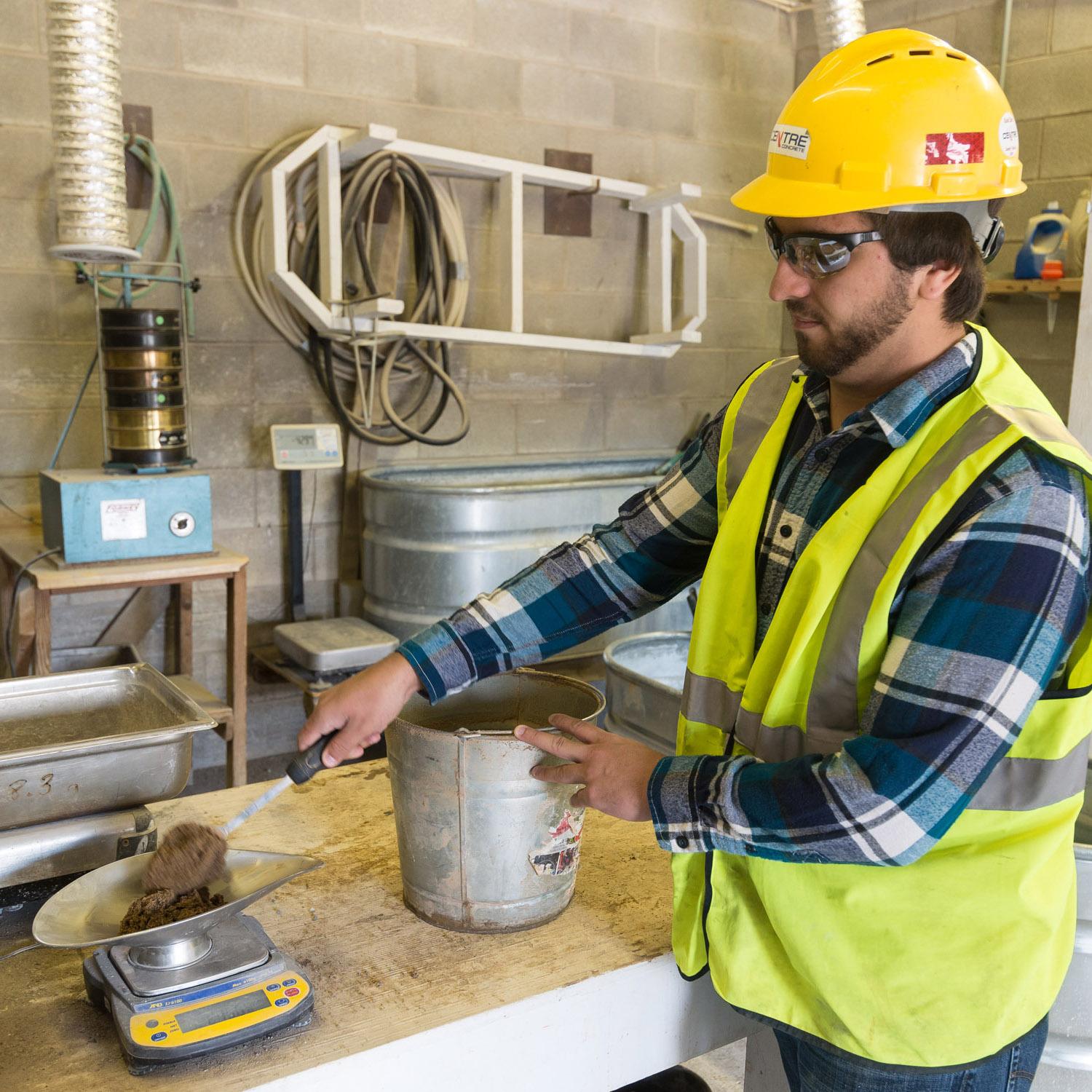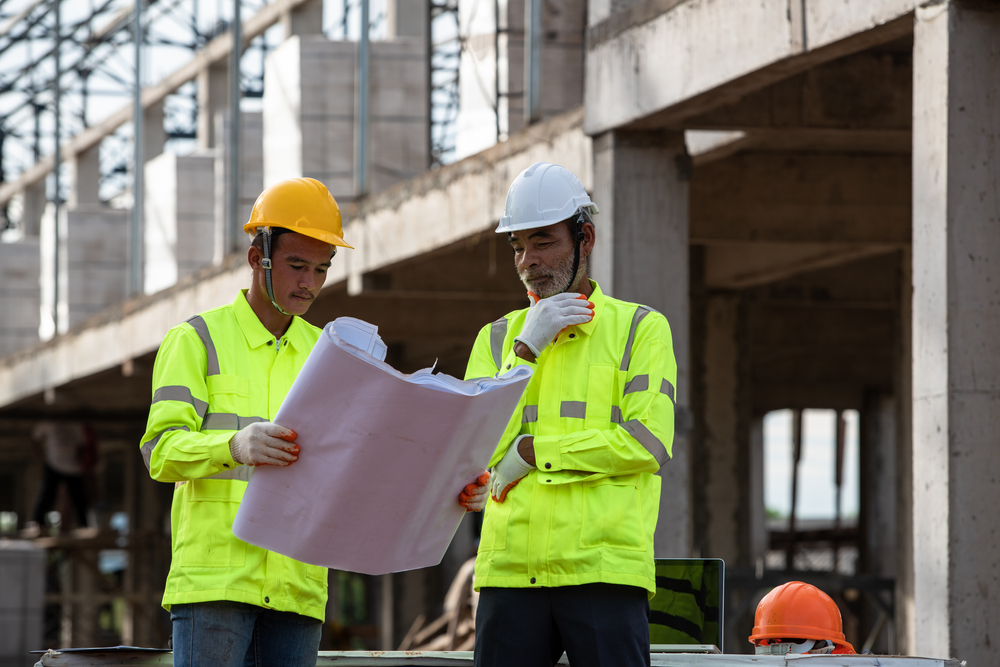A Deep Dive Into Concrete Performance: Exploring West Coast General Engineering Concrete’s Core Advantages
A Deep Dive Into Concrete Performance: Exploring West Coast General Engineering Concrete’s Core Advantages
Blog Article
The Essential Duty of Concrete Structure in Structural Honesty and Long Life
When it concerns building a residential or commercial property, the foundation is much more crucial than you may believe. Concrete foundations supply unmatched strength and longevity, ensuring your framework can hold up against different environmental obstacles. Without a solid base, you run the risk of potential problems like changing or splitting, which can jeopardize security and worth. Comprehending the nuances of concrete foundations can be the secret to preserving your financial investment for several years ahead. So, what should you take into consideration following?
Comprehending the Value of Concrete Foundations
Concrete foundations are essential to the overall security of any type of structure, as they offer the vital support required to hold up against numerous tons and environmental problems. When you think concerning building a home or a business area, the structure is the very first thing you should consider. It serves as an obstacle against wetness, safeguarding your property from water damages. A well-placed concrete structure additionally protects against settling and shifting, which can bring about fractures in walls and floorings. You'll wish to guarantee that the foundation is properly made and strengthened, as this impacts the longevity of your building. Furthermore, a solid structure can boost power performance by decreasing air leaks. Bear in mind, neglecting the significance of a concrete structure can result in expensive repair services down the line. Spending in a quality structure upfront is necessary for the integrity and resilience of your framework.
Advantages of Concrete Foundations for Architectural Stability
While several aspects add to a building's structural integrity, concrete foundations use unmatched longevity and toughness. You'll value that concrete can endure extreme weather, withstanding both wetness and temperature level variations. This strength means your structure is less most likely to experience fracturing or changing over time, which can compromise its safety.Additionally, concrete's fundamental weight offers a solid base, protecting against activity throughout all-natural occasions like quakes or floodings. When you select a concrete foundation, you're likewise choosing for low maintenance; unlike wood, it will not rot or draw in bugs, conserving you money and time in repairs.Moreover, concrete's fire resistance uses added security, ensuring your structure can sustain high temperature levels without significant damage. Overall, investing in a concrete structure suggests you're focusing on the long-lasting stability and integrity of your structure, making it a sensible selection for any kind of building and construction job.
Typical Kinds of Concrete Foundations
When it involves constructing foundations, understanding the typical kinds of concrete foundations can help you make educated options for your project. One of the most widespread types include slab-on-grade, crawl room, and full cellar foundations.A slab-on-grade foundation is an easy, affordable option, where a thick concrete piece is poured straight on the ground. This type works well in cozy environments, as it decreases warm loss.Crawl area foundations boost the home slightly over ground, permitting air flow and accessibility to pipes and electrical systems. This style can help avoid moisture issues.Full basement structures use added living or storage room while providing outstanding structural assistance. They call for even more excavation and are usually made use of in colder climates to avoid frost heave.
Aspects to Take Into Consideration When Designing a Concrete Structure

Best Practices for Putting Up Concrete Foundations
When you're installing a concrete structure, appropriate site prep work is important to ensure stability (West Coast General Engineering concrete foundation). You'll also need to understand support methods to improve stamina and toughness. Do not neglect the healing process, as it plays an essential role in attaining a solid structure.
Site Preparation Importance
It might appear simple, appropriate site prep work is crucial for ensuring a strong and sturdy concrete foundation. Start by getting rid of the location of any particles, plants, or organic material that can jeopardize the structure's stability. Next, analyze the dirt type and compaction; you could need to dig deep into or add materials to develop a steady base. Level the ground to assure even weight circulation and prevent working out concerns in the future. Installing correct drainage systems is additionally vital to stop water accumulation, which can deteriorate the foundation gradually. Mark out the structure's measurements precisely to lead the pouring procedure. By following these actions, you'll establish the stage for an effective concrete foundation that stands the examination of time.
Support Methods Clarified
Once the website is correctly prepared, the following step in ensuring a tough concrete foundation involves carrying out effective reinforcement methods. You must begin by using steel rebar, which supplies tensile toughness and helps avoid splitting. Lay the rebar in a grid pattern, making certain it's elevated utilizing spacers to keep proper coverage. Furthermore, take into consideration making use of wire mesh for extra support, particularly in locations based on hefty loads. Don't forget to connect the rebar crossways firmly with cord. For bigger structures, fiber support can enhance sturdiness, lowering the threat of shrinkage cracks. Always follow local building ordinance and guidelines to guarantee compliance. By applying these reinforcement methods, you'll substantially enhance your structure's strength and longevity, laying a strong foundation for your framework.
Healing Refine Basics
To ensure your concrete structure remedies effectively, it is necessary to maintain adequate moisture and temperature level problems quickly after putting. Begin by covering the surface area with a damp cloth or plastic sheet to maintain wetness. This maintains the concrete moisturized, avoiding cracks and making certain toughness. You must likewise keep an eye on the temperature; ideal healing problems are between 50 ° F and 90 ° F. If it's too warm, mist the surface regularly to prevent quick evaporation. For winter, think about using shielding blankets to maintain heat. Objective for a curing duration of at least 7 days, as this is important for optimum stamina development. By complying with these best techniques, you'll improve your structure's longevity and durability, ensuring architectural integrity for many years to come.
Maintenance of Concrete Structures for Durability
To keep your concrete structure solid and enduring, normal evaluations are essential. You ought to additionally guarantee reliable drainage options remain in location to stop water damage. If you detect any fractures, resolving them quickly will conserve you from larger problems down the line.

Routine Evaluations and Evaluations
While regular inspections and analyses may seem like a task, they're important for maintaining the honesty of your concrete structure. By routinely looking for splits, changes, or signs of wear, you can capture possible problems before they rise into costly fixings. Try to find any water merging around the structure or uncommon settling, as these can signal underlying troubles. It's additionally smart to keep track of any modifications in your house's structure, like doors that stick or home windows that don't open smoothly. Keeping a document of your inspections aids track changes gradually, enabling proactive maintenance. Eventually, these analyses ensure your foundation stays steady, supporting the durability and safety and security of your entire structure. Do not ignore this crucial facet of homeownership!
Efficient Drain Solutions
Regular assessments can expose concerns like water drainage troubles that might compromise your concrete structure's stability. To stop water buildup, guarantee your rain gutters and downspouts direct water far from the structure. Installing French drains can effectively reroute surface and groundwater, minimizing stress on your foundation walls. In addition, rating the dirt around check here your home aids ensure that water flows away, instead of merging near your foundation.Consider using sump pumps in areas susceptible to flooding, as they proactively get rid of excess water. Frequently examine for obstructions in drain systems and clear them immediately. You'll shield your foundation's stability and long life by taking these aggressive measures. Remember, efficient drain options are crucial for keeping a solid, durable concrete foundation.
Prompt Crack Repair Works
When you discover fractures in your concrete foundation, addressing them quickly is vital for preserving its durability. Little cracks can quickly develop right into bigger problems, endangering the structural integrity of your home. Routinely examine your foundation for signs of damages, such as straight or upright fractures. If you identify any type of, don't wait-- repair them instantly. You can use epoxy injections or concrete patching substances, which work for securing cracks. Always adhere to the maker's directions and think about seeking advice from an expert for considerable damage. Bear in mind, timely repair work not just improve your foundation's resilience but additionally save you cash in the lengthy run by stopping a lot more comprehensive repairs down the line. Keep proactive, and your structure will continue to be solid and secure.
Resolving Typical Issues With Concrete Structures
Concrete foundations can encounter various concerns in time, making it critical to determine and address them immediately. One of one of the most common issues is cracking, which can happen due to temperature fluctuations or clearing up soil. If you observe cracks, it's important to assess their dimension and deepness; small fractures can often be sealed, while bigger ones may need expert evaluation.Water intrusion is another major problem. Excess moisture can cause mold and mildew growth and structural damage. Guarantee appropriate water drainage around your structure to reduce this danger. Additionally, seek signs of moving or bowing wall surfaces, as this can show underlying concerns with your foundation's stability.Regular evaluations are essential to capture these troubles early. If you spot any concerning indications, do not hesitate to get in touch with a foundation expert. By staying positive, you can preserve the stability and long life of your concrete structure, assuring your home continues to be secure and secure.
Frequently Asked Questions
How Does Dirt Kind Influence Concrete Structure Efficiency?
Dirt kind considerably influences concrete structure efficiency. If you have actually got extensive clay, for instance, it can trigger moving and splitting. Sandy dirt could cause settling. Understanding your soil aids assure a secure structure.
Can Concrete Foundations Be Repaired if Damaged?
Yes, you can repair broken concrete structures. Depending on the extent of the damage, strategies like epoxy shot or piece jacking can bring back stability. It's ideal to get in touch with a specialist for reliable options.
What Is the Common Lifespan of a Concrete Structure?
A concrete structure commonly lasts 30 to 100 years, relying on aspects like soil conditions, environment, and maintenance. You'll wish to watch on it to ensure it remains in good form throughout its life expectancy.
Exist Choice Materials to Concrete for Foundations?
Yes, there are alternatives to concrete for foundations, like steel, timber, and even recycled products. Each option has one-of-a-kind benefits and drawbacks, so you need to consider your project's particular needs when selecting the appropriate material.
Just How Does Environment Impact Concrete Structure Sturdiness?
Environment considerably influences concrete foundation sturdiness (West Coast General Engineering industrial concrete). Extreme temperatures, moisture, and freeze-thaw cycles can damage the material, leading to splits and architectural issues. You ought to consider neighborhood environment problems when preparing your foundation to ensure lasting efficiency
Report this page